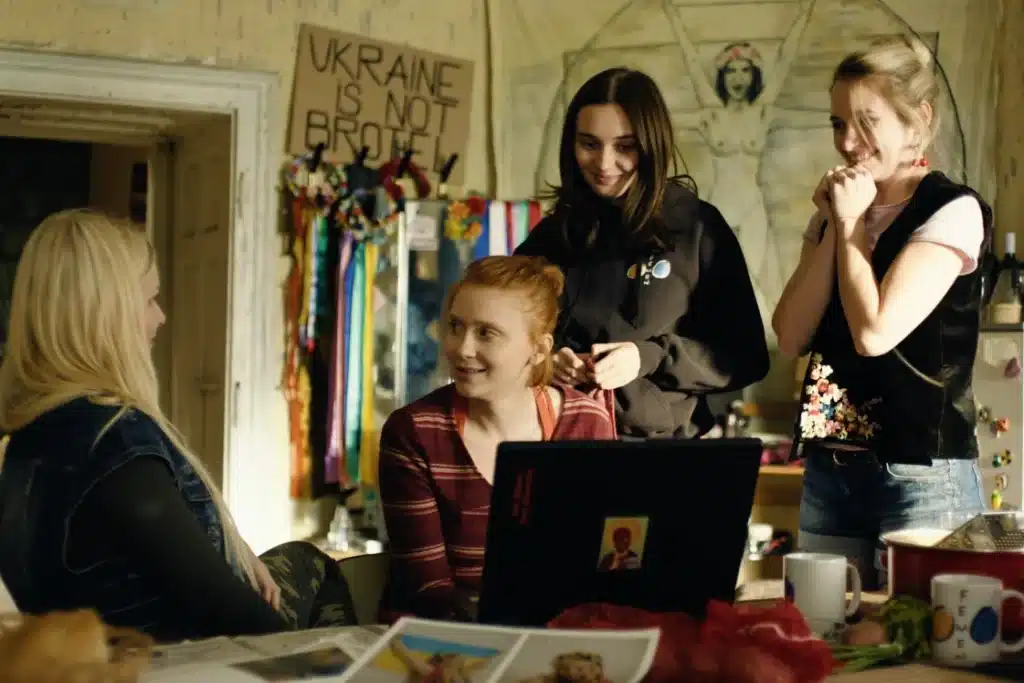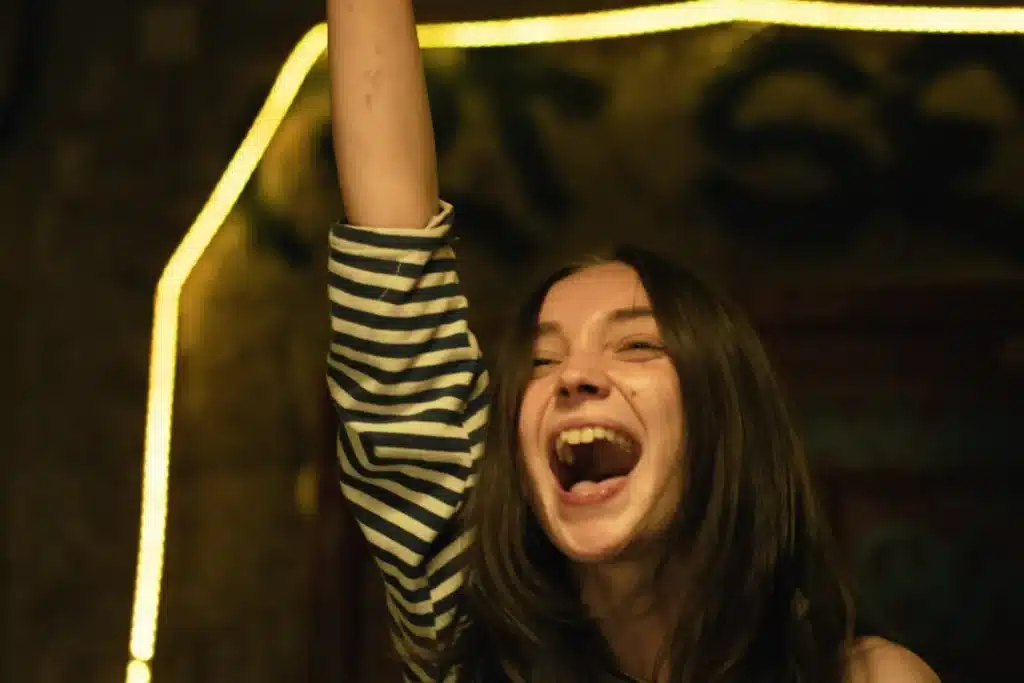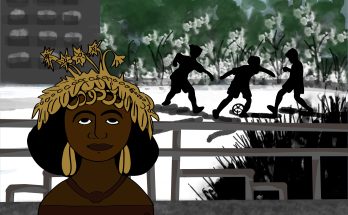The image of a strong woman who fights for her rights is one of the most important trends of our time. French director Charlène Favier offers her vision of the heroine of our time, based on the biography of Ukrainian activist and artist Oksana Shachko. Starting from May 1, her film Oxana will be shown in German-Swiss cinemas.
Favier, who wrote the script together with Antoine Lacomblez, does not build her film linearly. She tells us in detail about the last day of Oksana’s life – July 23, 2018, interspersing it with memories of her life and her struggle. In theory, such a construction should explain to the viewer why a young woman, healthy and outwardly prosperous, voluntarily passes away. But this does not happen: there is no one explanation, we may only guess what kind of shame Oksana is talking about in her last monologue and why this shame is unbearable for her.
The film Oxana by the young French director Charlène Favier, released in 2025, is dedicated to the life and work of the Ukrainian artist and activist Oksana Shachko, one of the founders of the Femen group. This is not the first film about Femen (before that, Ukraine Is Not a Brothel by Kitty Green, Je suis Femen by Alain Margot and Naked War by Joseph Paris were released), but is is the first full-length feature film. Trying to create a portrait of a vibrant revolutionary heroine whose life was tragically cut short is a difficult but interesting task, especially now that Ukraine is in the news all the time.
Perhaps the answer can be found in episodes from the past? Here’s what we learn about Oksana Shachko from the film. Since childhood, she had a passionate nature, wanted to devote herself to God, painted icons, but quickly realized that the ministers of worship were dishonest and mercantile people, – even a familiar priest profited from her. Having met with the other young girls who were dissatisfied with the patriarchal way of life and lack of rights, Oksana decided to fight. Since for her this fight was inextricably linked with creativity, she actively used the slogans and her painted body at protest actions. Together with her friends, she organized the Femen group, which fought for women’s equality, and also against corruption and prostitution. After being physically harassed, she asked for political asylum in France. She lived there for five years, moving away from the political activities and focusing on her artistic practice.
Unfortunately, the problem is that the film tries to describe Oksana’s entire life without focusing on a single topic or conflict. In the end, we know everything and nothing. Everything when we talk about the facts, and nothing when we talk about the essence. First of all, we don’t understand what kind of person Oksana is, why she starts to fight, what motivates her. She talks to her friends, casual lovers, and even her mother with artificial book phrases and slogans, and since people don’t usually talk like that in real life, many film scenes seem funny and fake. We see neither her doubts, nor her excitement, nor her resentment, nor any human emotions at all, we just see a warrior maiden recklessly rushing to fight injustice. Albina Korzh acts temperamentally, but this is not enough to create a round character. Does Oksana realize the real danger? Does she think that getting naked in public places can really make a difference? Without understanding this, it is difficult to understand what led her to suicide.
Something similar is happening with the depiction of the Femen group activities. We see fragments of their provocative performances, we see the police brutalizing them, but all this is again very illustrative, as if we are watching pieces of the chronicle played by the artists. The relationship within the group is not clear, and the nature of the conflict that led to the Femen breakup is also quite vague. Inna Shevchenko, who initially arouses sympathy with her reasonable, balanced position, is shown as a soulless careerist who betrays former comrades. It is impossible to say why this happened, because the director of the film again gives us too little information for reflection.
Summing up all the above, we can say that Charlène Favier’s attention to topical issues (her first film Slalom was dedicated to the rape of a minor) causes sympathy. Her Oxana may seem interesting to those who have never heard of Oksana Shachko, Femen and protest actions in Ukraine. Drawing attention to the theme of women’s artistic protest is an important mission. However, from an aesthetic point of view, Oxana can hardly be considered a success. Favier prefaces the film with a statement that it is inspired by the life of Oksana Shachko. But in the end the film itself doesn’t seem inspiring enough.





____________________________________
OXANA
Regie: Charlène Favier
Mit: Albina Korzh, Maryna Koshkina, Lada Korovai
Land, Jahr, Dauer: UA, FR, 2024, 104 Minuten
Genre: Biography, Drama
Jugendfreigabe: 14
Kinostart: 01.05.2025




